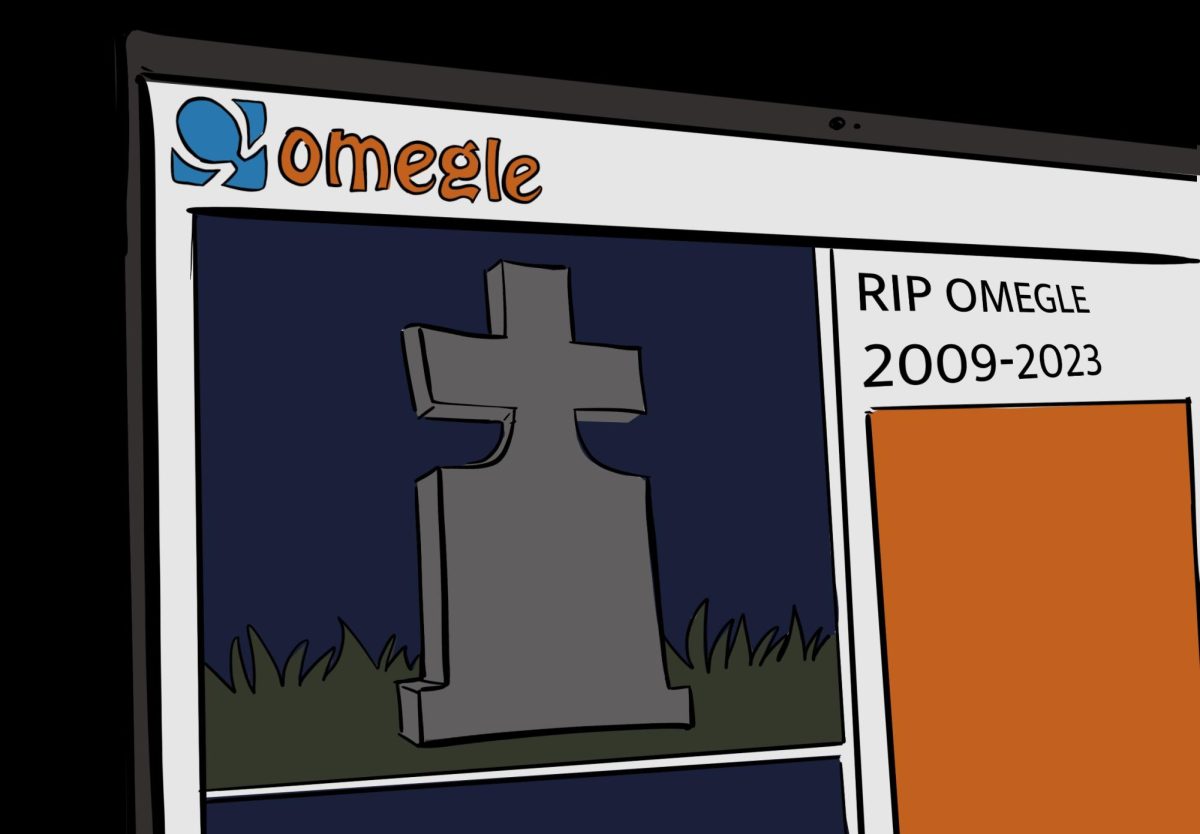After 14 years operating under the motto “Talk to strangers!” the popular video chat site, Omegle, has officially shut down, according to its founder, Leif K-Brooks.
In a farewell letter addressed “Dear Strangers,” Brooks cites the innocent ideal of what Omegle stood for, but also notes that “there can be no honest accounting of Omegle without acknowledging that some people misused it, including to commit unspeakably heinous crimes.”
The most recent of a long series of legal discourse, a young woman sued the website in 2021, accusing it of matching her in a chat when she was 11 years old with a man who sexually exploited her.
According to NPR, “The young woman, identified only as A.M., sought $22 million in damages in her lawsuit. Omegle was shut down days after the two sides agreed to settle the lawsuit.”
Founded in 2009, Omegle has been around for the adolescent years of many Seattle University students, and Gen Z youth across the world.
Karim Jooma, a second-year law student, opened up about his experience using the platform.
“Omegle was a staple for meeting strangers on the internet,” Jooma said.
Typical to many others, Jooma used Omegle for fun, whether it be during sleepovers or whilst on FaceTime with friends, commenting on the range of people you could meet on the site.
“It was one of those things used by a lot of people, but hardly if ever for its intended purpose,” Jooma noted. “It went from kids like me to old guys sitting there naked.”
Many students and former users weren’t shocked to hear of the current legal debacle surrounding the platform. Given the nature of what took place on the site, for many people, the shutdown wasn’t surprising.
Joseph Garcia, a junior at Albuquerque Academy, weighed in on the controversy surrounding the platform.
“I wasn’t very surprised, it’s a crazy place,” Garcia said. “It felt like it was going to happen sooner or later.”
Similar to Jooma, Garcia would often visit the site late at night when hanging out with friends, noting the danger of using Omegle alone.
Nonetheless, Garcia did make sure to point out he is sad about Omegle being gone. Aside from being fun and exhilarating, never knowing who was going to pop up next, Omegle was a place where people from across the world were able to connect.
“I think it was a good way to communicate with people from other places,” Garcia said. “One time, when I was taking French in school, I typed French into the category search so I was able to connect with people who spoke French and practice with them there.”
Unfortunately, this positive experience was not respected enough by a large number of Omegle’s users, many of whom abused the site for its anonymity—exposing themselves on camera, or requesting sex acts from others.
“There was an excitement around the platform, because it was something you were obviously not supposed to be looking at. Parents were unaware, teachers were unaware, and even politicians, it seemed, were largely unaware,” Tyrah Majors said, an adjunct professor in communication and media at Seattle U and anchor and reporter for the weekday morning newscasts on KOMO News.
Growing up, Major’s middle school years came at a time when kids were frequenting the site. Omegle was launched before mainstream social media platforms like Instagram and Snapchat.
Popular almost instantly after launch, Omegle quickly reached millions of daily users, and remained in wide usage up until 2023 according to a recent New York Times article. Peaks came during the pandemic, when people sought relationships while in isolation.
Coupled with its scale, in the letter, Brooks notes that while the company had “implemented a number of improvements” to its services, including human and AI moderators, the standards that critics had set were “not humanly achievable.”
“I wish there were better restrictions back when I was a teen, and up to the day Omegle was shut down,” Majors commented. “There should be no spaces anywhere where such crimes are allowed to occur.”
The end of Omegle comes at a time when lawmakers and law enforcement agencies continue to examine the role of technology and social media in the lives of young people.
“I think that Omegle is an example that all eyes are on social media platforms and how they are affecting minors especially,” Majors said.
As Omegle shuts down, an opportunity to connect with strangers goes missing. Whether for better or for worse, this restriction is a clear sign more attention is being paid to the social media landscape all of us take for granted.













Beni
Feb 13, 2024 at 1:11 pm
Hi
Nazmul Hossain
Dec 16, 2023 at 9:13 am
Very Sad to see Omegle shut down after 14 years, it was a uncommon stage that connected people world wide. Let’s hope for safer alternatives to provide a secure space for online interactions.
nica
Nov 29, 2023 at 11:50 am
Sad to see Omegle go after 14 years, it was a unique platform that connected people globally. However, the misuse of the site leading to heinous crimes was a concerning issue. Let’s hope for safer alternatives like Emerald Chat to provide a secure space for online interactions.